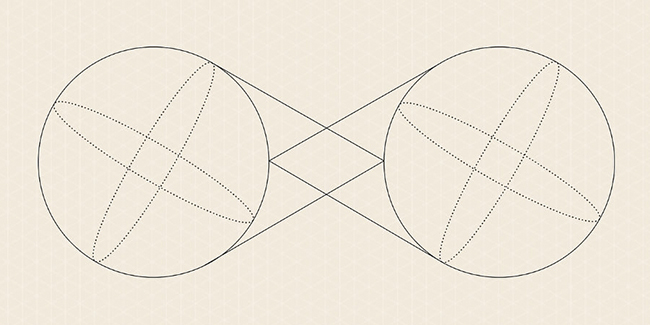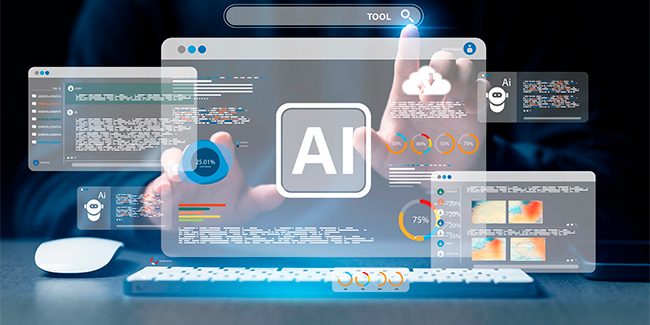

Exploring Quantum Computing: The Next Era in Tech


Every day brings something new to the world of tech. New technologies, breakthroughs and things we couldn’t imagine and imagine just several years ago! Nowadays, we step into the future of quantum computing, where atoms perform acrobatics and data dances to a new tune. Quantum computing represents not just a tech upgrade. It’s the world with weird and wonderful laws of quantum mechanics. If you’re eager to hear more about our future, this article we created together with Introduct dedicated developers team on quantum computing. Buckle up—it’s going to be a quantum ride!
What’s Quantum Computing?
Unlike traditional computers, quantum computing is all about using the principles of quantum mechanics. Traditional computers’ data units are strictly binary bits with a 0 or a 1. At the same time, quantum computers are different: their unit of data is so-called qubits, or quantum bits, that defy conventional logic.
What’s the difference between bits and qubits? Qubits can be 0 and 1 at the same time. This ability allows quantum computers to process vast amounts of data at an incredible speed with today’s standard computers. Superposition and entanglement give quantum computers capabilities unknown to classical computing.
Qubits and Quantum Computing – How It Works?
If we think of qubits as superheroes of the computing world, they are a bit different. Qubits can be created in a few ways: by changing the states of atoms, ions, or electrons, or by building tiny artificial atoms out of circuits using a method called lithography. Unlike ordinary bits, qubits can be dual! Having such a unique feature, quantum computers can enable:
- Parallel Processing. A single qubit can process various calculations at once, acting as an efficient multitasker.
- Rapid Scaling. The computational capacity increases twofold with the introduction of each additional qubit, greatly diminishing the time required to tackle intricate challenges.
- Qubit Interactions through Entanglement. Qubits can entangle, linking their states regardless of distance. This allows quantum computers to scale their processing power exponentially;
Industry Adoption and Theoretical Advances
The possibility of mass usage of quantum computers still seems vivid. In 2019, Google claimed that a quantum computer solved a task in 200 seconds, while traditional computers would take 10,000 years to solve the same task. Nevertheless, the solved task had no real-world application, it was more like a theoretical demonstration and faced skepticism from other tech firms.
Otherwise, there are still some predictions about the practical use of quantum computers. According to McKinsey Digital, 72 percent of tech executives, investors, and academics believe we’ll see a fully fault-tolerant quantum computer by 2035. The remaining 28 percent think this milestone won’t be reached until 2040 or later.
Potential Uses and Applications of Quantum Computers
Nevertheless, quantum computers can’t fully overcome standard traditional computers, but they can make a big impact in several areas. Let’s take a deeper look at these areas:
- Cryptography. Usually, classical cryptography relies on integer factorization or discrete logarithms, while quantum computers can break these traditional encryption methods and create unbreakable codes. This step might change cybersecurity forever.
- Pharmaceuticals. Quantum computers found their application even in pharmaceuticals. They can speed up drug creation by simulation of complex molecular structures. As they work exceptionally well for modeling quantum systems, using quantum phenomena.
- Materials Science. Not only pharmaceuticals but also the creation of new materials with specific properties. Quantum computers can find their application even there.
- Artificial intelligence. In this fast-growing era, AI is in demand. Quantum computers can help in developing better machine learning algorithms and speed up machine learning, etc.
Quantum computing represents a groundbreaking technological shift, offering unprecedented computational power through qubits and the principles of quantum mechanics. As we progress towards fully fault-tolerant quantum computers, their potential applications in cryptography, pharmaceuticals, materials science, and artificial intelligence are becoming increasingly evident. These advancements promise to revolutionize industries and redefine our technological landscape. To stay updated on the latest tech news, stay tuned with Introduct.
More Articles

AI Usage in Brewing Beer: Unveiling the Secrets AI Usage in Brewing Beer: Unveiling the Secrets
Have you ever thought that AI can be connected to the process of brewing? Surprising, right? For some, brewing beer is a process that has sacred family value, while for others - the process of satisfaction and making money. Probably, you're wondering how AI can be connected to brewing. Well, in this article we're going to unveil the secrets of AI usage in brewing beer.

Artificial Intelligence in Software Engineering — A Real Threat for Developers? Artificial Intelligence in Software Engineering — A Real Threat for Developers?
In the age of Artificial Intelligence in Software Engineering, more and more developers face the problem of being able to stay relevant in their field. Developers' concerns about the future of their profession are justified and might seem like a situation where people fear new technology will overtake jobs.
